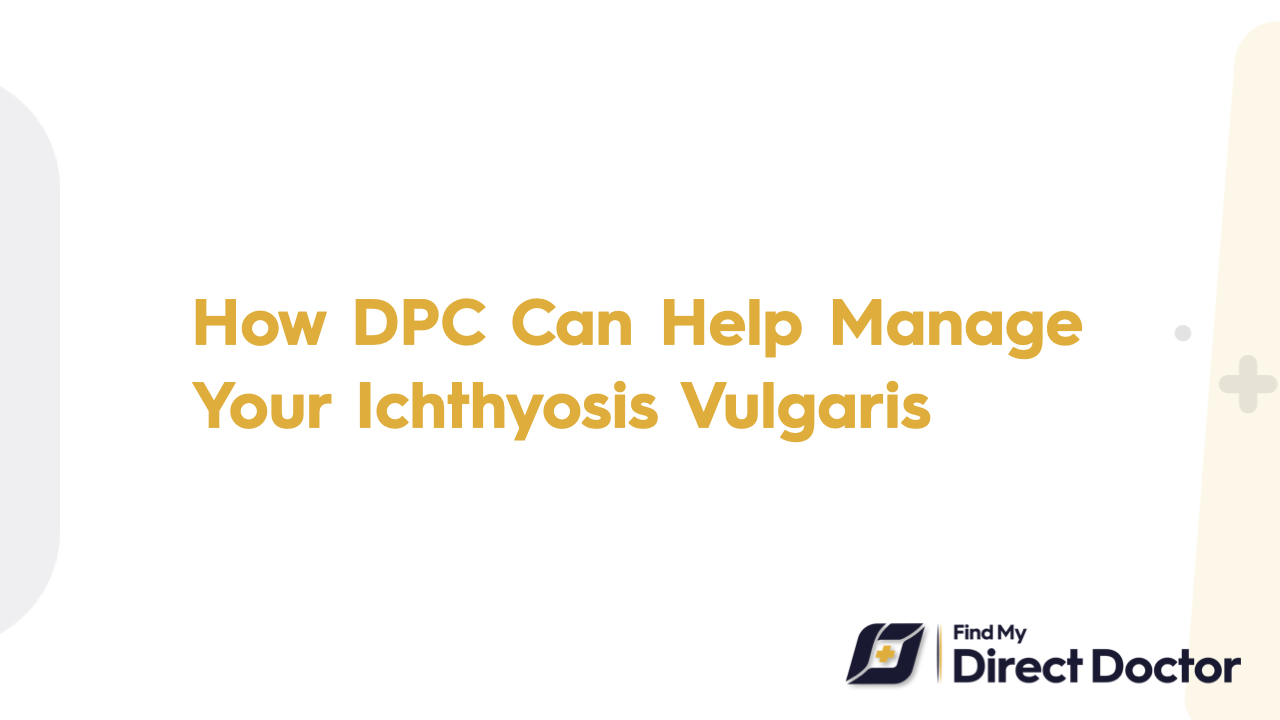



A persistent skin disorder called ichthyosis vulgaris is typified by dry, scaly skin that frequently resembles fish scales. It is a hereditary condition brought on by abnormalities that impair the skin's capacity to appropriately expel dead cells. Although it can sometimes manifest later in life, this ailment usually becomes apparent in early childhood. Symptom severity can vary; some people simply have minor dryness, while others have more noticeable and extensive scaling.

Common symptoms include thicker skin on the palms and soles, as well as flaky skin, particularly on the arms, legs, and back. The skin may have fine, white scales or feel rough. Deep skin cracks caused by ichthyosis vulgaris can occasionally become unpleasant or prone to infection. In cold, dry weather, symptoms tend to worsen, whereas in warm, humid weather, they tend to improve.
By providing continuous, individualized care that is catered to each patient's specific needs, Direct Primary Care (DPC) offers a proactive approach to managing ichthyosis vulgaris. Although there isn't a cure for the disorder, DPC doctors use customized treatment strategies to improve skin health and lessen symptoms.
To make sure that therapy is working and to modify therapies as necessary, DPC providers perform continuous monitoring. To reduce inflammation or infection, they may recommend certain moisturizers, exfoliants, and occasionally drugs. Patients receive ongoing advice on efficiently managing their disease thanks to the strong patient-physician relationship that DPC cultivates.
Access to ongoing, thorough care is one of the main advantages of DPC for patients with ichthyosis vulgaris. DPC guarantees that patients receive enough attention to address both their medical ailments and emotional well-being, in contrast to traditional healthcare models where patients may have little time with their clinicians.
Additionally, DPC places a strong emphasis on preventive therapy by teaching patients how to modify their lifestyles to reduce symptoms. Advice on skincare practices, humidifier use, and dietary changes that promote skin health may fall under this category. Because DPC doctors are easily accessible, patients can get immediate advice anytime new symptoms appear or existing therapies need to be adjusted, which improves quality of life.
Effective management of ichthyosis vulgaris requires tailored care, and DPC is excellent at creating customized treatment programs. Since every patient's situation is different, DPC doctors take the time to learn about their particular triggers, way of life, and preferred course of therapy. This individualized method guarantees that the patient's needs are met.
When needed, DPC providers frequently work with dermatologists or other specialists to create a coordinated treatment plan that maximizes results. The ability to modify therapies in response to the skin's reaction is advantageous to patients, guaranteeing a flexible and dynamic approach to ichthyosis vulgaris management. In addition to enhancing symptom management, this degree of care gives patients the confidence to actively manage their illness.